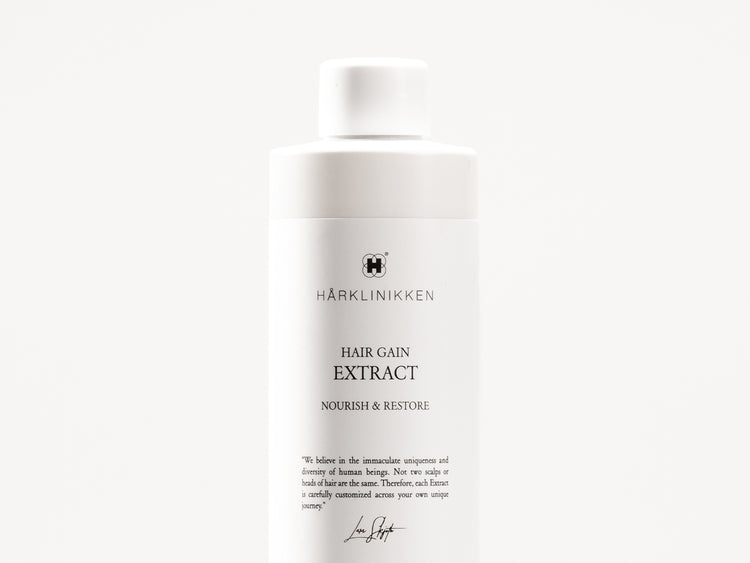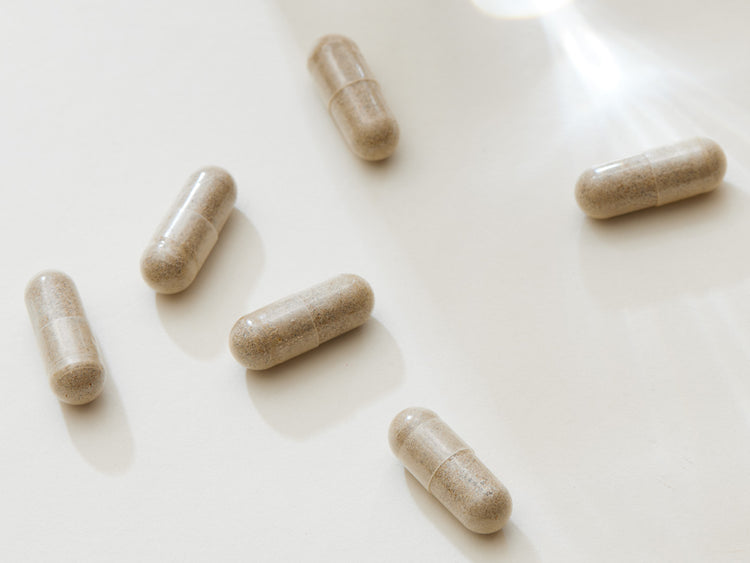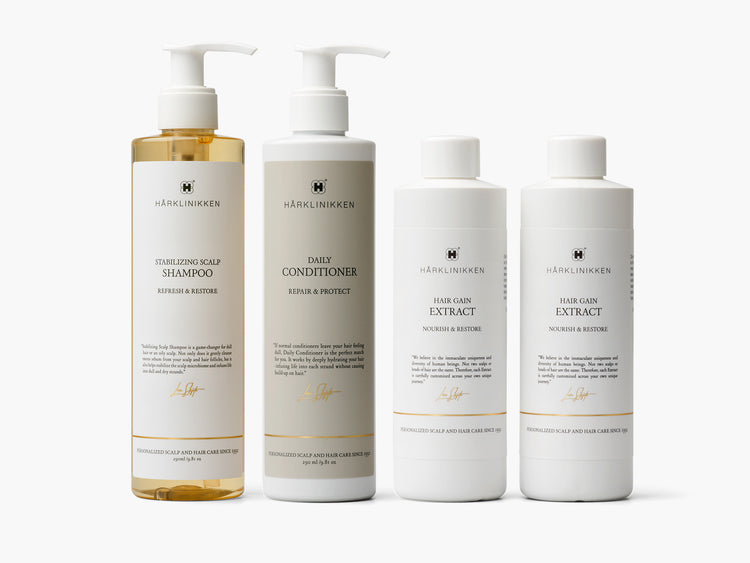The list of factors that impact your scalp and hair can feel never-ending, but the truth is that your overall wellbeing is intrinsically linked with your scalp and hair health. Oxidative stress might sound like a scary term, but it’s a natural part of life. It affects your physical, emotional and mental health in various ways, but – just like other types of stress – it’s sometimes unavoidable, sometimes preventable, and oftentimes reducible.
What is oxidative stress?
A common and natural occurrence, oxidative stress is an imbalance between antioxidants and free radicals in and around the body – specifically not enough of the former and too many of the latter. When the body is exposed to too many free radicals, damage can be done to the body’s cells, protein and tissue – sometimes known as “oxidative injury.” It can also create and exacerbate inflammation. While oxidative stress can’t be entirely avoided, when the body experiences high levels or prolonged exposure, various issues can arise.
What are free radicals?
Free radicals are molecules or atoms that contain an unpaired electron in its outer shell (sometimes known as an open electron shell), making it highly reactive – meaning it’s more likely to interfere or react to other molecules in the body. These types of reactions or interactions can lead to cell and tissue damage. While free radicals are produced naturally by the body, they also exist in the outside environment.
What are antioxidants?
Generally speaking, antioxidants are compounds that work to prevent or slow the damage done by free radicals. They do this by “donating” some of their own electrons to the free radical; essentially neutralising it or reducing its ability to cause potential harm.
How does oxidative stress affect the scalp and hair?
Oxidative stress has been linked to inflammation, cell damage and protein oxidation, which means it can wreak havoc on your scalp skin barrier, hair follicles, and strands. This can present itself in various conditions like:
- Dandruff
- Seborrheic dermatitis
- Psoriasis
- Scalp ageing
- Androgenic alopecia
What are some common causes of oxidative stress?
There are several natural reasons the body experiences oxidative stress which are unavoidable (such as ageing and medical conditions), but others are caused by outside factors that we have a little more control over. Here are some reasons for the body to experience an imbalance between antioxidants and free radicals:
- Mitochondrial dysfunction: often called the “powerhouse of the cell,” mitochondria produce energy and is essential to all cellular function. When mitochondrial is not able to deliver the energy requirements needed for normal organ function, it can result in the production of excess reactive oxygen species (ROS) which can lead to increased oxidative stress.
- Medical Conditions: various disorders and conditions like diabetes, obesity, hypertension and infection can lead to an imbalance of free radicals and antioxidants.
- Ageing: As we get older, the body’s ability to defend against oxidative stress declines.
- Hormonal fluctuations: Some imbalances in hormones can result in the body producing fewer antioxidants than needed.
- Exercise: Like everything in life, it’s important to strike the right balance with exercise – working out too little can cause many issues, but physical exertion can also create problems; one being an over-production of ROS, which are a type of free radical.
- Poor Diet: A diet that’s packed with vitamins, minerals, antioxidants and other nutrients helps the body neutralise free radicals. But a diet high in saturated and trans fats and sugar can increase the number of free radicals in the body, throwing the balance off.
- Smoking: Smoking increases the body’s oxidative stress two-fold – because it introduces the body to free radicals (including ROS) that are present in cigarette smoke and because smoking drains the body of its natural antioxidants.
- Drinking: Excessive drinking can negatively impact the body’s mitochondrial production and reduce its antioxidant levels.
- Environment: Environmental factors like sun exposure, pollution, pesticides and radiation leave the body more exposed to free radicals.
Are there ways to reduce the body’s exposure to oxidative stress?
Yes, and they are essentially all the same ways to create and maintain overall wellbeing.
- Eat a healthy diet (mainly unprocessed, nutrient-dense food)
- Stay hydrated
- Exercise regularly and in moderation
- Reduce stress
- Get plenty of sleep
- Quit smoking
- Limit alcohol consumption
- Practice sun safety
- Avoid or reduce exposure to pollution and potentially harmful chemicals
How can you combat oxidative stress with scalp and hair care?
Because oxidative stress can negatively impact scalp health (and, in turn, hair health) it’s important to treat your scalp like your face: cleansing frequently and correctly with products packed with beneficial constituents; not potentially problematic ingredients. At Hårklinikken, our shampoos, conditioners, masks, scalp treatments, and styling products are meticulously formulated using proprietary constituents derived from natural ingredients. That means with every use, your scalp and hair receive nourishment from nutrient-rich antioxidants that help protect from oxidative stress.

Unsure where to start?
We only accept candidates who we believe we can help, which is why our online Hair Assessment is the best place to start. Based on your results, you will either qualify for immediate treatment or we will organise a consultation.






